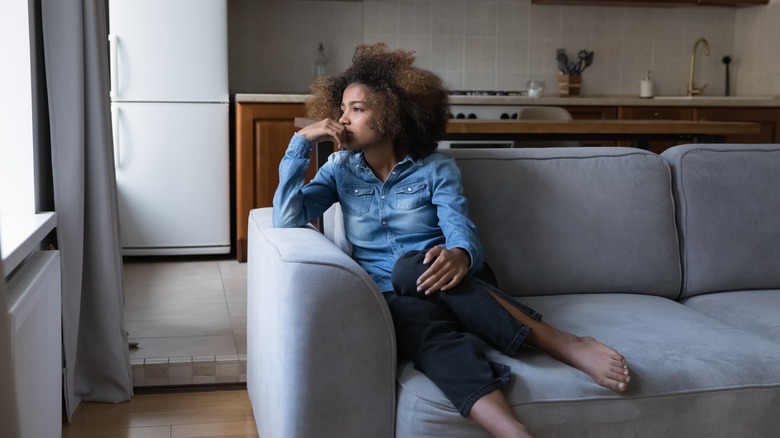'Comparison Is The Thief Of Joy,' So Why Do We Do It?
It is hard to stay away from comparison. The opportunities to do so are all around us. All we need to do is get on social media or walk outside and view some ads. In fact modern society has made it almost impossible not to measure yourself against someone else — whether that's skincare brands telling you what the ideal beauty standards are or your relatives flaunting their expensive homes on Facebook.
You must be familiar with the uncomfortable emotions that arise from looking at your friend's travel photos on Instagram when you yourself have been wanting to take a trip for months. You didn't have the finances to make the sojourn but your friend didn't seem to have any trouble visiting Santorini. Cue the feelings of jealousy, sadness, discontent, and frustration that follow. It doesn't matter that your friend is obviously only sharing the highlight reels of their life on social media, a simple thing like that can put a damper on your entire day. You may tell yourself the post didn't upset you but somewhere deep inside, it flipped a switch and now you're going about your day with a knot in your stomach, unable to appreciate the things you do have in your life.
Hilarious Twitter comparisons between Ron DeSantis and Nancy Sinatra aside, why do we engage in this joy sucking exercise? Have we no control over it?
Comparison is a natural part of evolution
Theodore Roosevelt may have noted that "comparison is the thief of joy," but that hasn't stopped humans from doing just that. In fact, according to psychologist Pia Linden, the need to compare ourselves against others is a perfectly natural and evolutionary need. "Humans are 'social animals' and our ancestors have always lived and survived in groups. Comparing yourself to others serves as an orientation to see where we stand in a group and whether we need to take some action to improve our performance or position," she told OpenUp.
Theories like social comparison theory, upward comparison, and downward comparison will tell you that there's a reasoning (and benefit) behind it all. It seems that we, as humans, have always lived in relation to others and comparison is a big part of such coexistence. Upward comparison (comparing yourself against someone superior) can help you improve yourself and downward comparison (measuring yourself against someone you think is inferior) can bring about feelings of gratefulness and self-confidence.
While this sounds innocent enough, there is a dark side to it as well. As New York-based psychologist Dr. Claire Nakajima puts it in Thriving Center of Psychology, if your comparison is driven by envy or jealousy, this can become a hindrance to joy, especially in your relationships. "When you're constantly comparing others favorably to yourself, your self-esteem is also going to be negatively impacted, and this can contribute to feelings of anxiety and depression," she explained.
How to get out of the comparison game
The important thing to remember is that it's highly unlikely that you can tailor-make your entire life so you are not exposed to instances that will cause you to compare. In fact, a healthy dose of comparison once in a while can be good for you. It can motivate you and inspire you to be better, as long as you choose to look at it that way. But when it starts to become a thief lurking in the crevices of your mind spewing discontent all over the place, it's time to do something about it.
Putting notes into a gratefulness jar is a good daily habit to follow. Writing out one or two things you're thankful for in your life each morning and collecting them in an old cookie jar to review at the end of the year is a fun and creative way to remind yourself to enjoy what you have. If you find that being on Instagram is making you feel more envious, consider taking some time off social media. Or at the very least, limit your daily intake or unfollow accounts that are triggers.
Celebrating the simple things in life — otherwise known as microjoys — can boost your well-being too. You can also look at the bigger picture often and see how far you've come. Choosing to better today's version of you compared to yesterday's is a healthier exercise than letting comparison rob you of joy.


